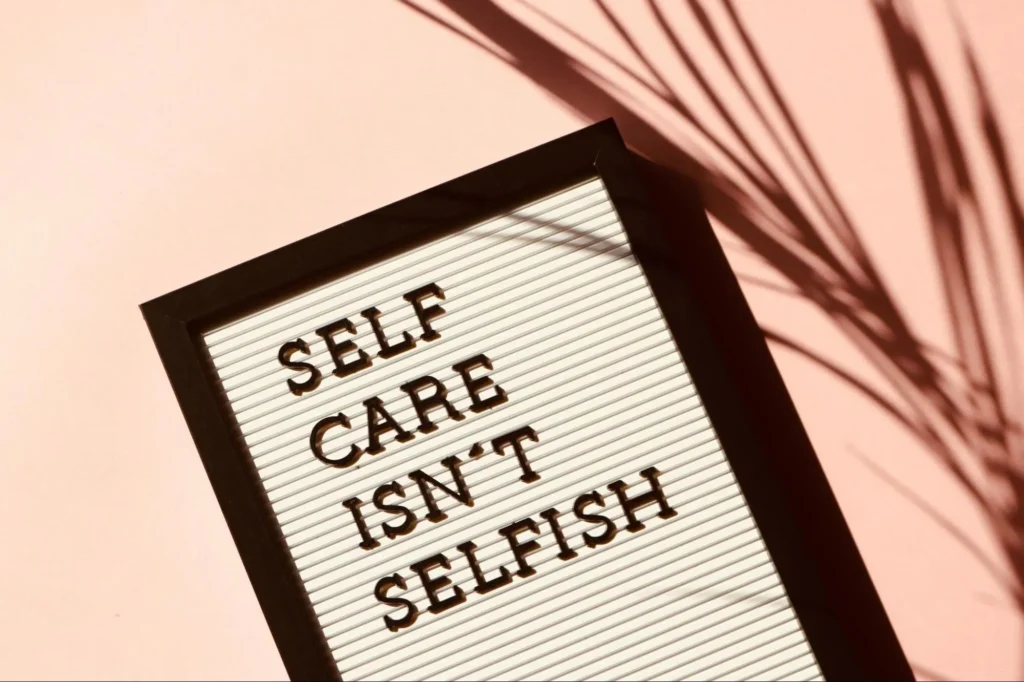8 Common Mistakes in Self-Care Routines & How to Correct Them: Advice from Mental Health Professionals
Ever wondered what mental health experts pinpoint as the most frequent errors in self-care routines? In this post, leading voices such as a Psychology Consultant and a Licensed Psychologist share their insights. The discussion opens with the need to include emotional self-care and concludes with the idea of reframing self-care as self-love. Read on to transform your approach to self-care with professional advice.
- Include Emotional Self-Care
- Balance Physical and Emotional Wellness
- Maintain Consistent Self-Care Habits
- Simplify Self-Care Practices
- Prioritize Core Needs
- Set Boundaries for Self-Care
- Create Personalized Self-Care
- Reframe Self-Care as Self-Love
Include Emotional Self-Care
One common mistake I often see in my practice is people neglecting emotional care. Many focus primarily on physical activities like exercise, eating well, or going for a spa day—which are important—but forget that emotional self-care is just as crucial.
I often recommend practices like meditation and journaling to help stay grounded and emotionally balanced. Mindfulness teaches us to be present and acknowledge feelings without judgment. Even just 10 minutes of meditation a day can help reduce stress and bring clarity. Journaling, on the other hand, offers a safe space to lay down your thoughts and reflect on your emotions. It makes it easier to address any negative patterns before they turn into bigger issues.
By including emotional self-care in your routine, you’re better able to handle life’s ups and downs and make your overall self-care practice more balanced and effective. This holistic approach will help you feel more in control and emotionally resilient.
 Bayu Prihandito
Bayu Prihandito
Psychology Consultant, Life Coach, Founder, Life Architekture
Balance Physical and Emotional Wellness
A common mistake in self-care routines is focusing solely on physical aspects (like exercise and nutrition) while neglecting mental and emotional well-being. Someone may have a rigorous workout plan and a healthy diet but neglects allocating time for relaxation, stress management, or social connections. Also, the lack of consistency may impair a truly effective self-care routine.
To create a more balanced self-care routine, consider a variety of activities and set time to address different aspects of wellness, such as mindfulness or meditation, journaling, or spending quality time with friends and family.
Setting dedicated “time slots” each week to emotional self-care, such as reading, engaging in hobbies, or simply relaxing, can enhance overall well-being and improve self-care.
 Adestela Gurgel Bradley
Adestela Gurgel Bradley
Mental Health Counselor
Maintain Consistent Self-Care Habits
There are many things that can get in the way of sustaining and benefitting from self-care routines. One of the biggest things I see in my practice is the pattern of working hard to implement self-care. It works, and the person feels better and more resilient. Then, because they feel better, they stop the self-care behavior, thinking it is no longer needed or essential. I consider focus and support with the maintenance phase of a self-care habit essential.
Otherwise, it is easy to suffer from the “change-back effect” and build a cycle of self-care under fire, then diminished self-care and well-being when self-care falls away. This unfortunate crisis-driven pattern keeps individuals from obtaining lasting and deeper levels of benefit from self-care that occur when it is sustained over time.
 Alice Petty-Hannum
Alice Petty-Hannum
Psychotherapist, Alice Petty-Hannum MFT
Simplify Self-Care Practices
A prevalent mistake in self-care routines is the assumption that effective self-care necessitates significant time investment and complexity. This misconception can be particularly pronounced among professionals in high-pressure roles or understaffed environments, where the resulting neglect of self-care often leads to emotional exhaustion and diminished performance.
Self-care does not have to be an elaborate process. It can be integrated into daily routines through brief, intentional practices that promote well-being. For example, taking a few minutes for mindful breathing or engaging in short physical activity during breaks can serve as powerful interventions. By reframing self-care as achievable through small, consistent actions, individuals can prioritize their mental health without feeling overwhelmed.
A critical aspect of effective self-care is cultivating self-compassion. High-achieving individuals often grapple with self-criticism, leading to a reluctance to prioritize their own needs. By fostering a mindset of self-acceptance, professionals can learn to recognize the importance of taking breaks and seeking support, which ultimately enhances their overall effectiveness and resilience.
Setting firm boundaries around work and personal time is essential for effective self-care. This involves resisting the impulse to engage in work-related tasks during personal time and scheduling dedicated periods for self-care activities. Implementing structured boundaries allows individuals to recharge without compromising their professional commitments.
In conclusion, addressing the misconception that self-care is time-intensive is crucial for promoting well-being, particularly in high-stress environments. By simplifying self-care, emphasizing self-compassion, establishing clear boundaries, individuals can implement sustainable self-care practices that enhance both personal fulfillment and professional performance.
 James Rose
James Rose
Award-Winning Therapist & C-Suite Executive Coach, James Rose Coaching
Prioritize Core Needs
A common mistake I see in self-care routines is the misinterpretation of what self-care truly means. As a therapist, I view self-care as caring for yourself in ways that nurture your core needs. The most effective self-care routines prioritize the essentials: quality sleep, nourishing meals, and regular movement. Many people tend to overcomplicate their self-care or “binge” on big experiences like massages or weekend getaways. While these can be beneficial, sustainable self-care happens in the everyday practices: aiming for 7-9 hours of sleep, 30 minutes of daily movement, and three balanced meals.
Self-care can also look like simple, intentional habits—getting dressed each morning (especially important for those who work from home), maintaining a tidy living space, creating a morning routine, taking regular screen breaks, and sitting down for breakfast instead of eating on the go. It’s these micro-moments, rather than grand gestures, that create a lasting foundation of care and well-being.
 Julie Goldberg
Julie Goldberg
Therapist, Third Nature Therapy
Set Boundaries for Self-Care
A common mistake in self-care is focusing on wellness practices like yoga or meditation, but failing to set boundaries. Without boundaries, it’s easy to feel drained, despite engaging in self-care. Saying “no” is a crucial part of protecting your energy, but it can bring discomfort. Learning to sit with that uncomfortable feeling is key. It’s a reminder that honoring your limits may feel hard at first, but it’s essential for your emotional well-being and the sustainability of your self-care routine.
 Alexandra Huber
Alexandra Huber
Psychotherapist & Counsellor, Alexandra Integrative Therapy
Create Personalized Self-Care
One mistake I see often is trying to force yourself into a routine that doesn’t feel right just because it looks good on someone else. Self-care is about working with yourself, not against yourself. If keeping a clean space or taking a bath every day energizes you, that’s what you should focus on—not what looks perfect on social media. The key is to stop chasing someone else’s version of wellness and create your own. Think of it like this: When you work with yourself, self-care becomes less of a chore and more of a way to feel at home with yourself.
 Zita Chriszto
Zita Chriszto
Licensed Psychologist, Dubai Psychology
Reframe Self-Care as Self-Love
A common mistake I often see in self-care routines is that many women, especially those who are juggling high-pressure careers and personal responsibilities, tend to approach self-care as just another item on their to-do list. It becomes something they HAVE to do, rather than something they WANT to do.
As someone who’s worked with busy, successful women navigating everything from relationships to work stress, I’ve seen how this mindset can turn self-care into a chore instead of a restorative practice.
In my experience with women managing work-life balance, mental health diagnoses such as ADHD, or healing from past relationship trauma, this can be especially challenging. There’s a tendency to focus on completing tasks or sticking to a rigid routine because it gives a sense of control. But real self-care should feel less like an obligation and more like an opportunity to check in with yourself.
A way I ask my clients to correct this obligatory feeling that comes with self-care practice is to reframe self-care as an intentional act of self-love. Instead of following a set plan or ticking a box each day, week, or month, pause and ask yourself, “What do I truly need in this moment?” It might be something simple, like taking a break to breathe or spending a few minutes journaling about your feelings. It could also mean giving yourself permission to take a break to watch some reality TV without guilt.
There are a multitude of ways you can practice self-care in a way that feels more natural to your specific needs and wants rather than what society or others have you believe self-care should look or feel like. When self-care is personalized and responsive to your needs, it becomes a space where you’re allowed to slow down, recharge, and refocus on what makes you feel good.
This approach is what I believe to be most beneficial for women, especially those in high-demand jobs or those working through personal challenges like low self-esteem or unhealthy relationships. When self-care is rooted in mindfulness and flexibility, it’s no longer just another task…it becomes a practice of truly healing yourself from the inside out.
 Marian Maguire
Marian Maguire
Psychotherapist, Inner Strength Therapies


